Anything that gives you a competitive edge when starting a business is worth the effort that you put in. One incredibly effective way to learn how to start your own business is to read through case studies of top startups.
These will help you finesse your approach to business growth and teach you valuable lessons that others had to learn the hard way.
Hopefully, they will teach you what pitfalls to avoid and how to avoid them, as well as some of the best practices for developing your brand, growing a community, and increasing sales.
So, we have compiled a list of 30 best business startup case studies to help guide you through the ins and outs of creating a super successful business.
Let’s dive into this article on startup case studies.

Top Startups Case Studies of 2024
The Power of Success
1. DietBet
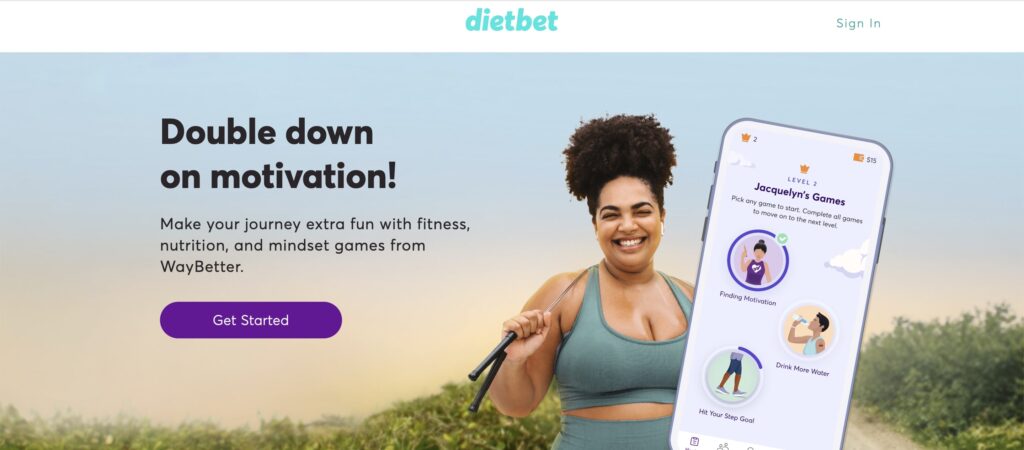
| Location: New York Funding: $4.8 million Industry: Healthcare, Gaming |
DietBet is a unique, motivational app that turns weight loss into a fun, competitive game, encouraging users to lose weight and bet on their goals within a supportive community setting.
Participants join a challenge, pledge a bet on how many kilograms they think they can lose within a specified timeframe, and then work towards their goal.
The app not only fosters a sense of accountability but also offers the opportunity to win financial rewards for successfully meeting weight loss targets.
With its blend of social support, financial incentives, and health-focused competition, DietBet provides an engaging and effective approach to weight loss, making the journey towards healthier living more enjoyable and achievable.
2. Moz

| Location: Seattle Funding: $29.1 million Industry: Tech |
This company specializes in developing tools designed to enhance your business’s SEO and marketing strategies. Moz stands as a prime example of how embracing community projects can significantly benefit a business.
By incorporating these initiatives, they not only bring added value to the company but also foster organic growth and further community engagement.
3. Foursquare
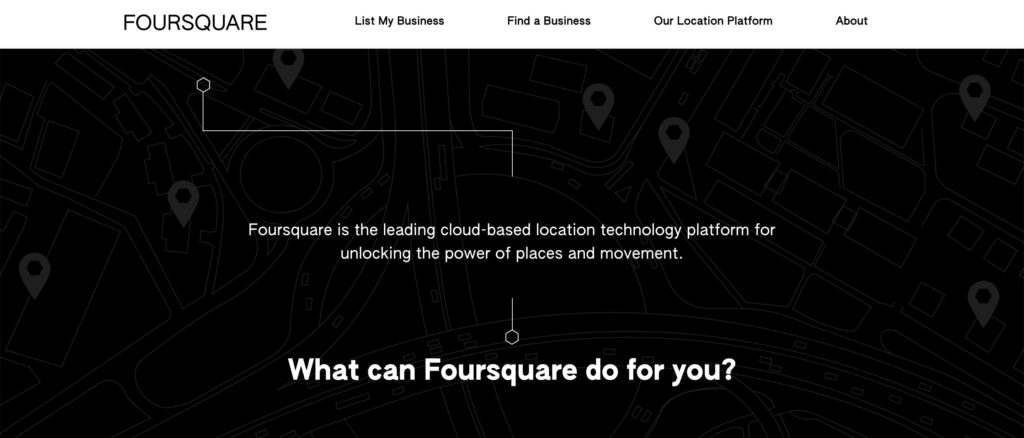
| Location: New York Funding: $390.4 million Industry: Tech |
Launched in 2009, Foursquare is a technology company that has revolutionized location intelligence. It develops advanced tools which help with real-time location checking.
Foursquare offers Proximity for location-based business-to-consumer interactions and operates popular consumer apps like Foursquare City Guide and Swarm for discovering and sharing location experiences.
By developing location-based services first and using user-generated content to produce insightful data for both consumers and businesses, Foursquare was able to achieve success.
Read the Foursquare case study
4. Fab

| Location: New York Funding: $153 million Industry: Online Retail |
Fab, initially launched in 2010, started as a promising eCommerce startup with a focus on selling everyday design products. The company underwent a series of significant transformations throughout its existence, reflecting its adaptability and willingness to explore new market opportunities.
Fab started as a gay social network and a daily flash sales site to ‘the world’s design store’ before finally being sold.
Fab achieved success as a business by combining a curated marketplace with a strong focus on design and innovation.
MORE: How to Check if a Business Name is Taken
5. Duolingo
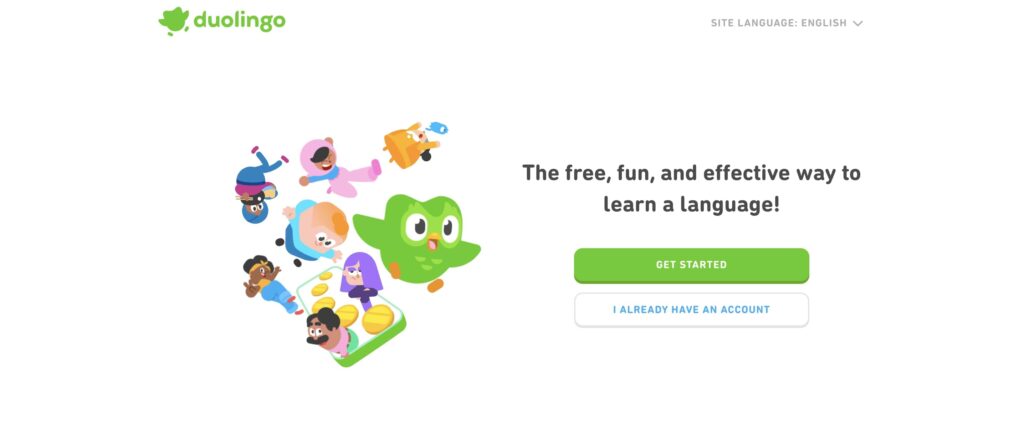
| Location: Pittsburgh Funding: $183.3 million Industry: Education Technology |
With a team of fewer than 40 people, Duolingo has rapidly expanded. In the past year alone, they’ve launched 39 new language courses.
The platform is one of the most popular language-learning apps to date. Their quick growth can be attributed to their approach to building communities, especially on their social media sites.
The famous Duolingo bird is especially popular in the TikTok space. It seems that the platform’s humor has won over the hearts of many people all around the globe.
6. Poptip
| Location: New York Funding: Undisclosed Industry: Social Media |
Poptip, founded by Kelsey Falter, emerged as a design-focused startup with the innovative goal of streamlining customer feedback through instant polling on social media platforms.
With a background in branding, marketing, and front-end development, Falter leveraged her diverse skill set to create a user-friendly interface that enabled businesses to engage with their audiences in real-time.
The success of Poptip can be attributed to Falter’s deep understanding of the significance of design in enhancing user experience and interaction.
By prioritizing a clean, intuitive design, Poptip stood out in a crowded market, offering a seamless way for companies to gather insights and make data-driven decisions based on customer preferences and opinions.
In 2014, Poptip was acquired by Palantir.
7. Wacom
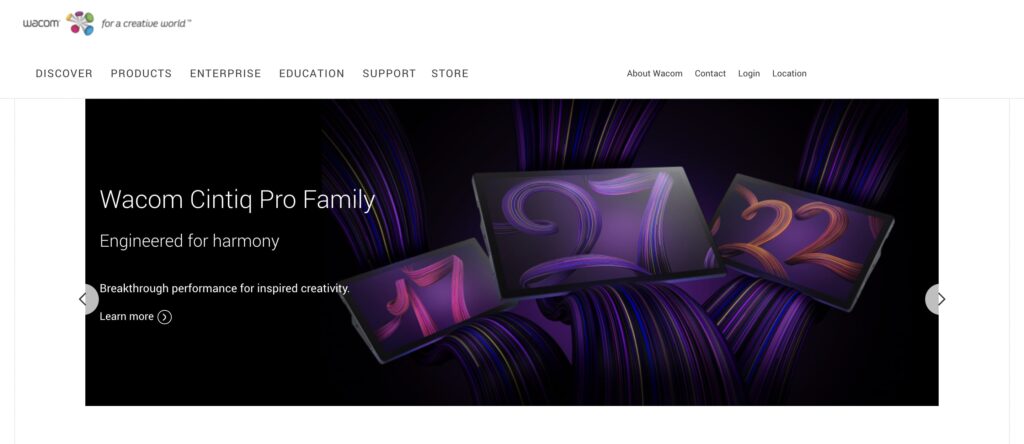
| Location: Kazo, Japan Funding: ¥112.7 billion Industry: Electronics |
Wacom is a leading global company known for its innovative technology in the field of digital drawing and graphics. Specializing in pen tablets, interactive pen displays, and digital interface solutions, Wacom caters to a wide range of users, from professional artists and designers to hobbyists and educators.
The company’s products are known for their precision, sensitivity, and intuitive design, allowing users to create with the natural feel of traditional tools but with the advantages of digital technology.
Wacom’s commitment to quality and creativity has made it a favorite among creative professionals, enabling them to bring their artistic visions to life with greater control and flexibility.
8. Netflix

| Location: Los Gatos Funding: $31.6 billion Industry: Entertainment |
With a great user experience and platform interface, Netflix is by far one of the leading video streaming services. The success of Netflix can be attributed to several key factors that make it a prime example of a startup success story.
The platform is designed in such a way that users of all ages and technological proficiencies can easily navigate through it.
The home page presents a neatly lined-up list of movies and TV shows, categorized into sections like ‘Trending Now, ”Watch Again,’ and genre-specific rows. This organization allows users to effortlessly find new content based on their preferences and viewing history.
Netflix is a textbook example of how understanding and prioritizing user experience can lead to remarkable success in the digital age.
Read the Netflix case study
9. New York Times App

| Location: New York Funding: Doesn’t follow the typical funding for a startup process Industry: Media and Entertainment |
The New York Times app offers a comprehensive digital platform for users to access award-winning journalism from one of the world’s most respected news sources.
Designed for a global audience, the app provides real-time news updates, in-depth analysis, and exclusive stories across a wide range of categories, including politics, technology, health, science, and culture.
With its user-friendly interface, the app ensures a seamless reading experience, enabling subscribers to easily navigate through articles, videos, and photo galleries.
Additional features include personalized recommendations, offline reading capabilities, and breaking news alerts, making it an essential tool for staying informed on the go.
Read the New York Times App case study
10. Harry’s

| Location: New York City Funding: raised $155 million in a Series E funding round, boosting its valuation to $1.7 billion Industry: Consumer Packaged Goods |
Shaving gear and men’s grooming is a vast market estimated to exceed the value of $6.37 billion and is almost entirely dominated by the likes of Wilkinson Sword, Shick, and Gillette.
Well, at least it had been until Andy Katz-Mayfield and Jeff Raider decided to offer a new experience in facial shaving.
Harry’s approach is differentiated by beautiful branding, product design (ergonomically designed handles with five-blade razors for a smooth and easy shave), a high level of quality control, and an eye for detail.
Their marketing stems from storytelling, which wouldn’t be possible without the co-founders’ experience with cracking markets with cool branding.
11. Dropbox
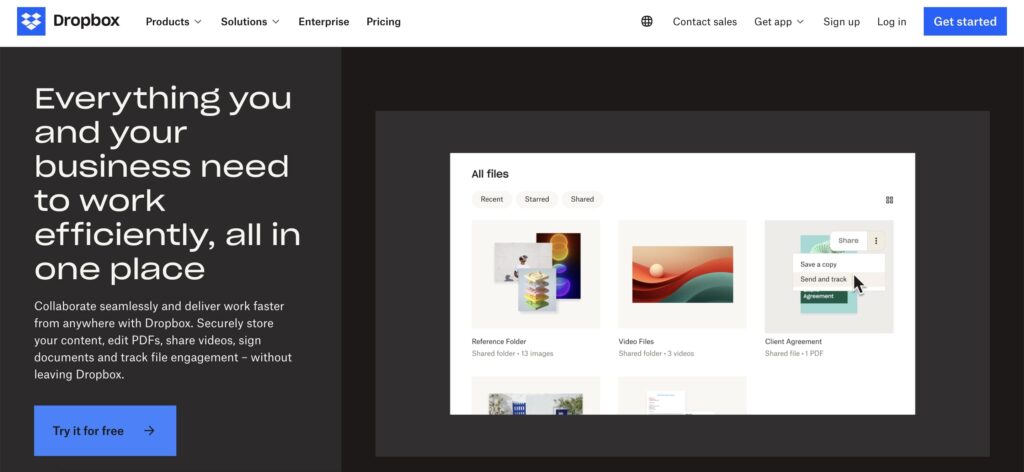
| Location: San Francisco Funding: Undisclosed Industry: Tech |
Dropbox is known as one of the best cloud storage and file-sharing services that enables users to store, access, and share files seamlessly across various devices.
Launched in 2007, Dropbox has become a go-to solution for individuals and businesses looking for a secure and efficient way to manage their digital content.
The platform offers features such as file synchronization, collaboration tools, and advanced security measures, making it easy for users to collaborate on projects, back up important data, and access their files from anywhere with an internet connection.
Dropbox’s user-friendly interface and robust infrastructure have made it a popular choice for storing documents, photos, and other files in the cloud.
12. Wealthfront
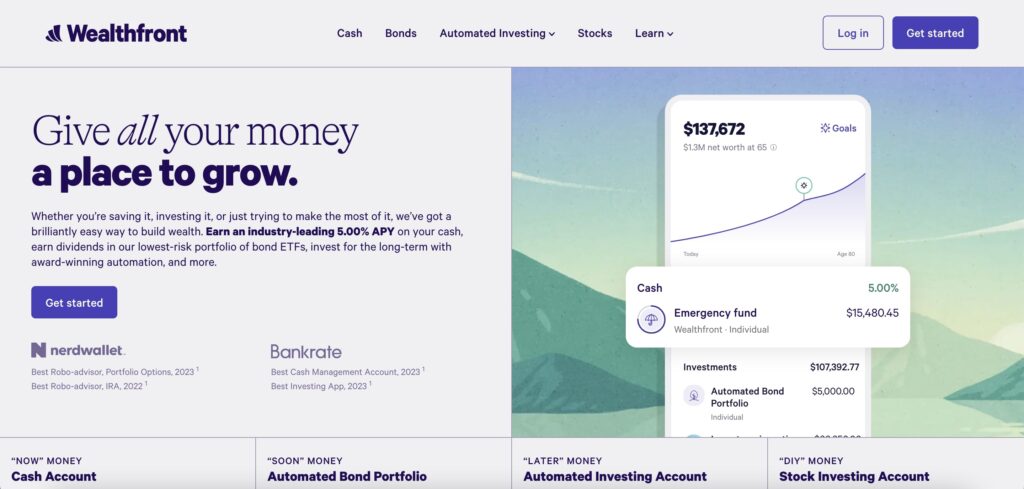
| Location: Palo Alto Funding: $204.5 million Industry: Finance |
Wealthfront is a leading robo-advisor and financial services company that offers automated, technology-driven investment management and financial planning solutions.
Founded in 2008, Wealthfront aims to simplify and democratize investing by providing clients with low-cost, diversified portfolios that are tailored to their risk tolerance and financial goals.
The platform uses advanced algorithms to optimize asset allocation and rebalance portfolios as needed, making it an attractive option for all investors seeking a hands-off approach to growing their wealth.
Wealthfront offers investment management and financial planning tools, including retirement planning, college savings, and home-buying guidance, making it a comprehensive solution for individuals looking to take control of their financial future.
Read the Wealthfront case study
MORE: How to Copyright a Business Name
13. ElevenLabs
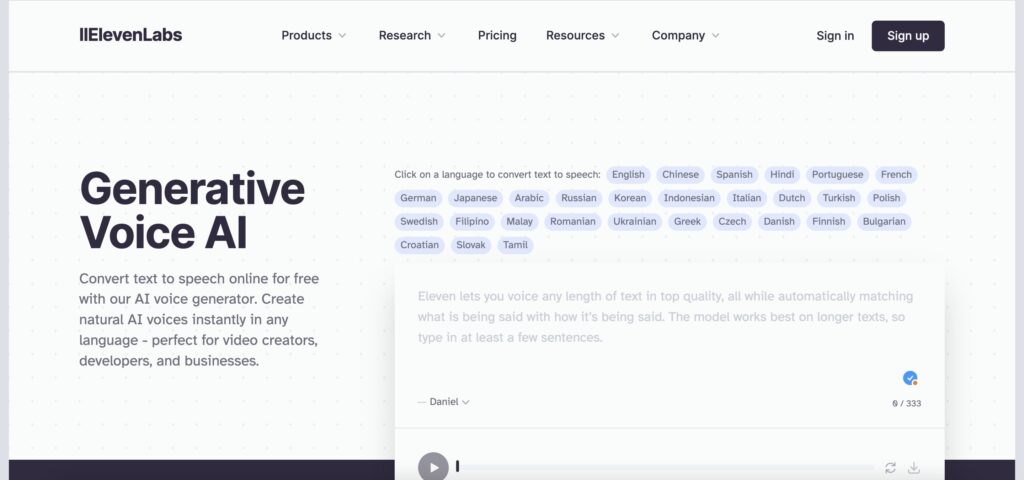
| Location: New York Funding: $101 million Industry: AI |
ElevenLabs is a technology company that specializes in creating advanced voice synthesis software using artificial intelligence.
Their platform enables realistic and natural-sounding text-to-speech conversions, facilitating applications in various industries such as entertainment, education, and customer service.
This company has been on top of the news recently, becoming Poland’s sixth unicorn startup in a very short amount of time.
Watch the ElevenLabs case study
14. IMVU
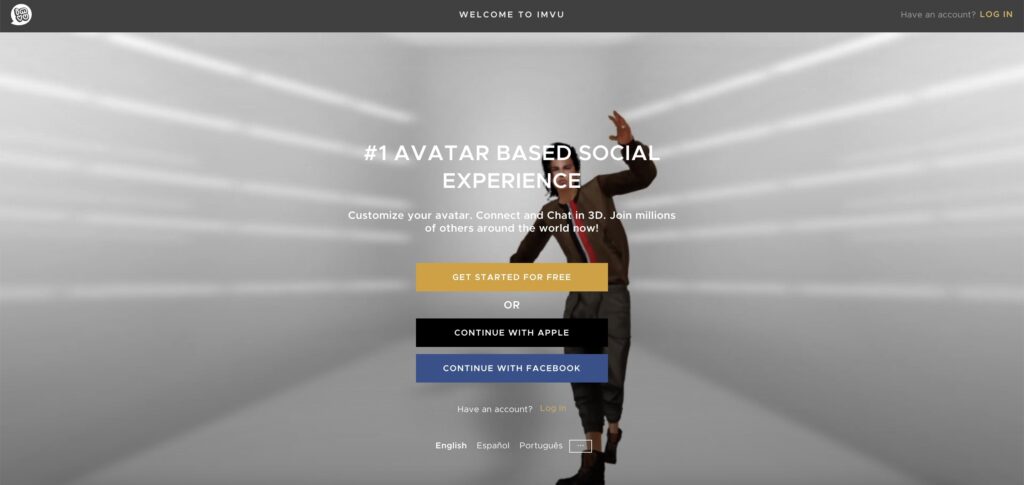
| Location: Redwood City Funding: Undisclosed Industry: Social Networking |
Founded in 2004, IMVU is the world’s largest 3D chat and dress-up community. This community allows members to meet new people with similar interests, chat, create, and play games together.
One essential point of their success is the continuous experimental development of new product features and processes.
15. Aardvark
| Location: Redwood City Funding: Undisclosed Industry: Social Networking |
Aardvark was an innovative app designed to streamline the process of gathering knowledge and insights through a social Q&A format.
Users could pose questions on a wide array of subjects, which then intelligently routed to other users with the relevant expertise or interests to provide accurate and helpful answers.
The app leveraged the power of community and networking to facilitate information exchange, making it easier for individuals to find solutions to their queries in real time.
With its intuitive design and user-centric approach, Aardvark fostered a collaborative environment for learning and sharing knowledge, catering to curious minds seeking reliable information and advice on the go.
Google acquired the company in 2010 but discontinued the product in 2011.
16. Uber
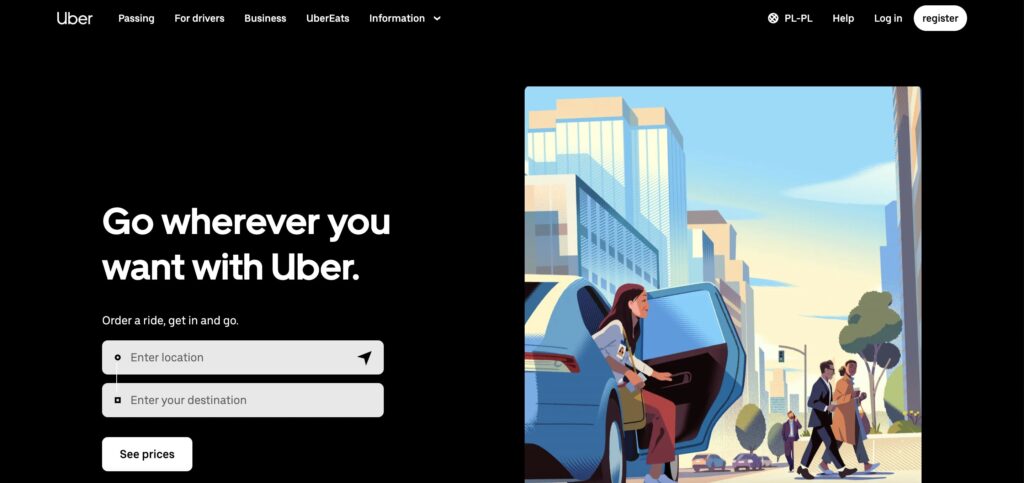
| Location: San Francisco Funding: Undisclosed Industry: Transportation |
Uber is a pioneering app that revolutionized the way we think about transportation, seamlessly connecting riders with drivers through its intuitive platform. In a few clicks, users can request a ride, choose their preferred vehicle option, and track their driver’s arrival in real time.
Uber’s commitment to convenience, safety, and reliability is evident in features like in-app payment, ride-sharing options, and detailed driver profiles.
Thanks to an innovative business model and great customer service, Uber was able to become a successful startup and completely change the game of the taxi industry.
Uber leveraged the new possibilities of technology, which was a breakthrough move for the company.
17. RightNow
| Location: Bozeman Funding: Undisclosed Industry: Software |
RightNow Technologies, founded by Greg Gianforte in 1997, was a software company that specialized in CRM solutions.
The company’s innovative approach to CRM, focusing on enhancing customer experiences and streamlining service operations, quickly garnered attention in the tech industry.
Starting with a modest investment of $5,000 from his personal savings, Gianforte bootstrapped the company, relying on support from friends and family for the initial two years. This lean approach to funding allowed RightNow to grow organically, focusing on product development and customer satisfaction.
The company’s success did not go unnoticed, and in 2011, Oracle, a global technology giant, acquired RightNow Technologies for an impressive $1.5 billion.
This acquisition marked a significant milestone in the CRM industry and highlighted the value of RightNow’s innovative solutions in improving customer service and engagement.
18. Endeca
| Location: Cambridge, Massachusetts Funding: Undisclosed Industry: Tech |
Endeca is a cutting-edge technology platform specializing in data management, search, and analytics. It empowers organizations to explore and manage vast amounts of diverse data, enabling them to uncover valuable insights and make informed decisions.
Endeca’s robust and flexible architecture facilitates the discovery and visualization of complex relationships within data, making it accessible and actionable for business users.
Its core strength lies in its advanced search capabilities and intuitive navigation, which allow users to sift through information seamlessly.
By providing powerful tools for data discovery and analysis, Endeca plays a crucial role in enhancing business intelligence, improving customer experiences, and driving operational efficiency across various industries.
Endeca was acquired by Oracle Corporation in 2011.
MORE: How to Come up with a Business Name
19. PatientPing
| Location: Boston Funding: $101.2 million Industry: Healthcare |
PatientPing is a healthcare technology company that focuses on providing real-time data to healthcare providers to improve patient care coordination.
It offers a platform that allows different healthcare entities, such as hospitals, primary care providers, and specialists, to share patient information seamlessly, ensuring better informed and more timely healthcare decisions.
PatientPing’s quick and reliable management of patient data is what made the company so successful.
Watch the PatientPing case study
20. Airbnb
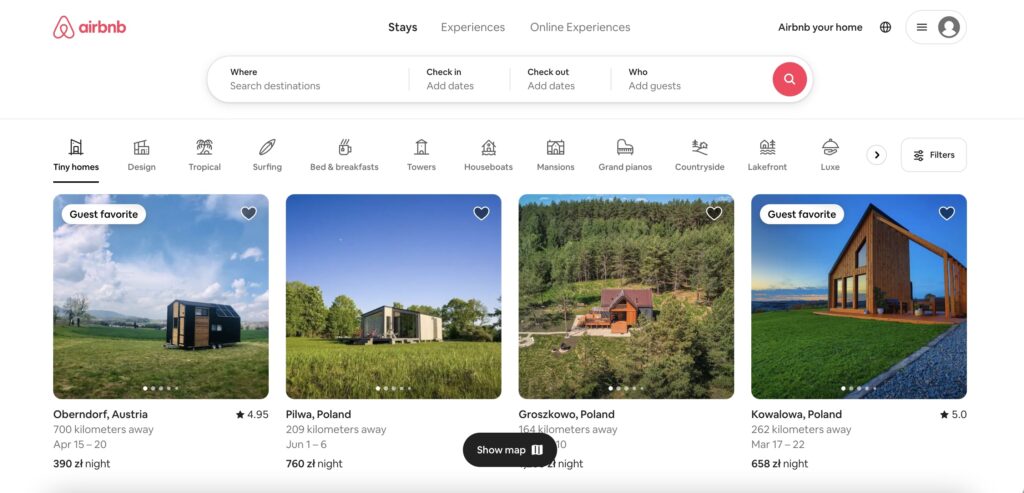
| Location: San Francisco Funding: $4.74B Industry: Lodging |
Airbnb is an online marketplace that connects people looking to rent out their homes with those looking for accommodations in that area.
Founded in 2008 by Brian Chesky, Joe Gebbia, and Nathan Blecharczyk, the platform has dramatically transformed the way people think about travel accommodation.
Unlike traditional hotels, Airbnb offers a diverse range of properties, including apartments, houses, treehouses, and even castles worldwide.
Airbnb’s success can be attributed to affordable prices, diversity, the possibility to meet and stay with locals, and much more.
21. Snackpass
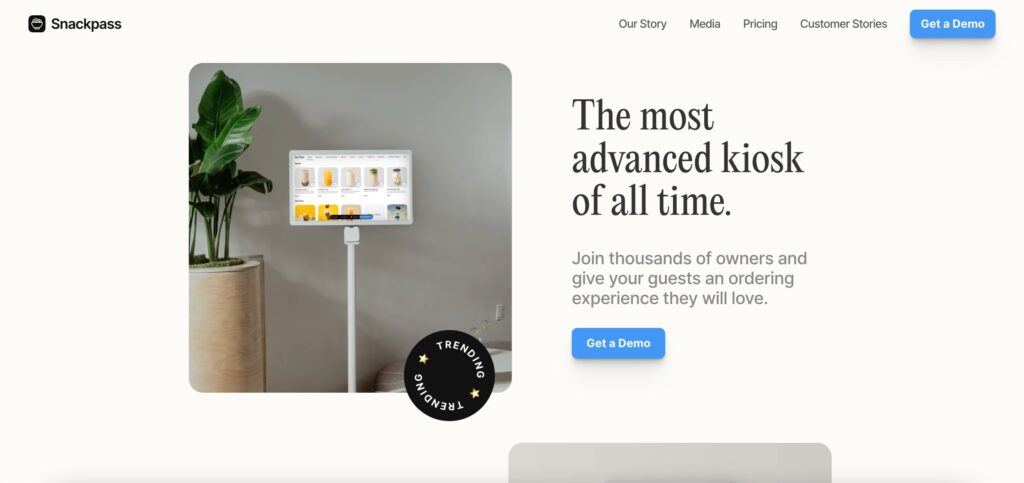
| Location: San Francisco Funding: $400m+ Industry: eCommerce |
Snackpass is an innovative app that merges the convenience of food ordering with the engaging aspects of social media. It’s primarily designed for takeout orders and integrates social functionalities like sharing rewards and viewing friends’ food orders in an activity feed.
The app has become increasingly popular among several university campuses across the United States.
Its success can be attributed to an easy, cheap, and convenient way of ordering food. As for restaurants — Snackpass increases sales and helps acquire new customers.
Watch the Snackpass case study
22. Blinkist
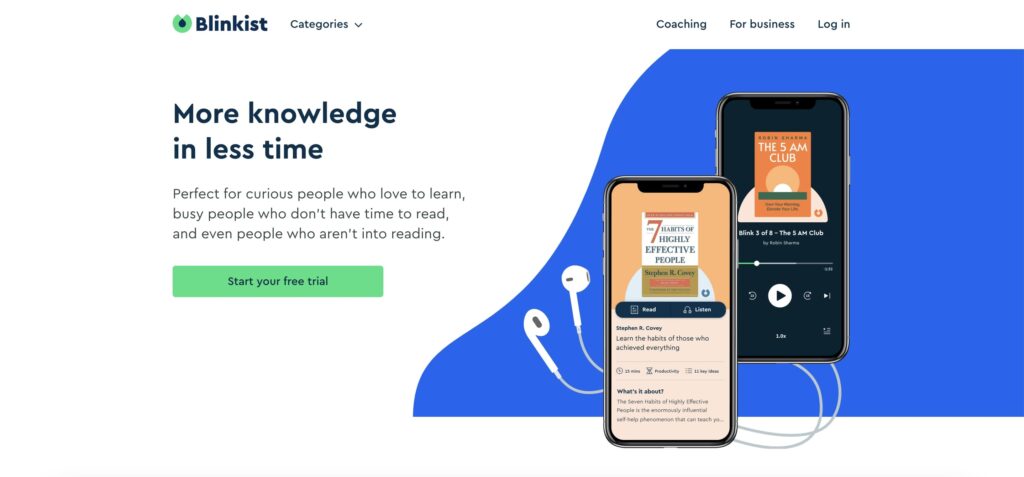
| Location: Berlin Funding: $34.8m Industry: Education Technology |
Blinkist is a service tailored for students and professionals. It offers summaries of nonfiction books in text and audio formats.
It enables readers to efficiently absorb essential insights and broaden their expertise across various subjects without investing significant time, which is what made the service successful.
Blinkist is ideal for those seeking to enhance their business awareness or explore new trends quickly.
23. FlyFin
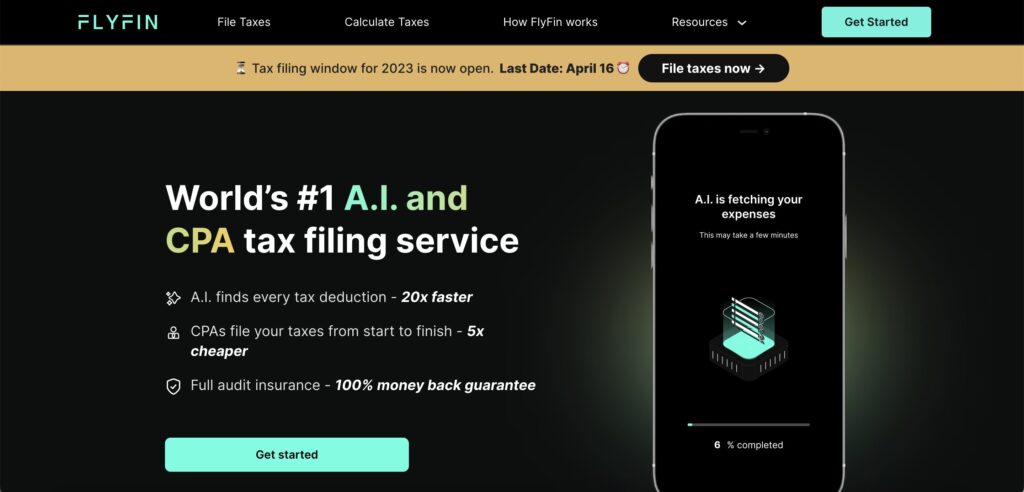
| Location: San Jose Funding: Pre-Series A and Seed, $8 million Industry: Fintech |
FlyFin is a company that leverages AI technology to provide tax preparation and filing services. It’s designed to automate the process of identifying tax deductions and helps users, especially freelancers and independent contractors, to maximize their tax savings with minimal effort.
FlyFin’s platform simplifies the tax filing process, making it more accessible and efficient for individuals to manage their tax obligations.
24. Linguix
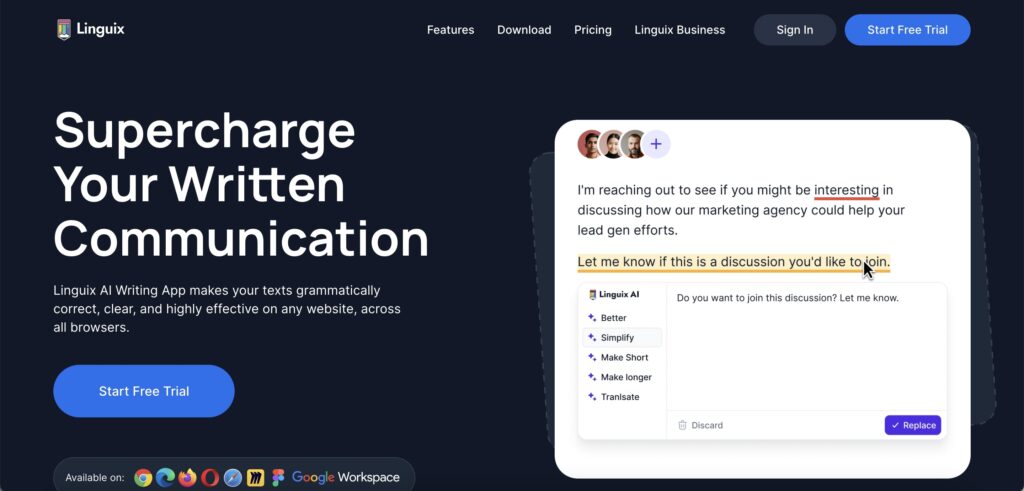
| Location: Miami Funding: Pre-Seed, $1M Industry: Education Technology |
Linguix is a digital writing assistant that uses AI to enhance writing quality by checking grammar, punctuation, and style.
Aimed at improving clarity and professionalism in written communication, it offers suggestions and corrections in real time.
Linguix is designed for both individual users and teams, making it a versatile tool for anyone looking to elevate their writing skills.
25. Snappr
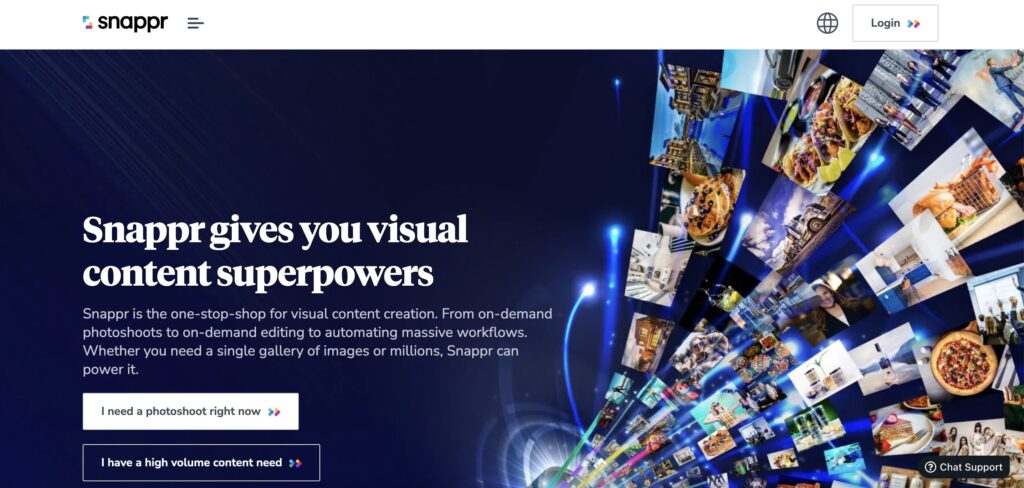
| Location: San Francisco Funding: Series A, $13 Million Industry: Content Creation |
Snappr is a platform that connects individuals and businesses with professional photographers for a variety of needs, from personal events to commercial shoots.
It simplifies the process of finding and booking photography services, offering access to a wide network of photographers with diverse specialties and experience levels.
MORE: How to start a business?
26. Grockit
| Location: San Francisco Funding: $44.7 million Industry: Gaming |
Grockit, founded in 2007, was an innovative online learning platform that focused on social learning, particularly in the context of test preparation for exams such as the SATs.
The company’s core principle was to create an interactive and collaborative learning environment where students could engage with each other, share knowledge, and learn collectively.
In 2013, Grockit was acquired by Kaplan, a leading provider of educational and career services.
The acquisition highlighted the value and potential of Grockit’s innovative approach to learning. However, despite its early success and promising concept, Grockit ceased stand-alone operations in 2016.
The Power of Failure
27. Tutorspree
| Location: New York Funding: $2.9 million Industry: Education technology |
TutorSpree, founded with the straightforward goal of helping parents and students find high-quality tutors for their educational needs, showcased a promising start in the ed-tech space. The platform’s user-friendly interface and robust matching system allowed for a seamless connection between students seeking academic assistance and tutors offering expertise in various subjects.
The platform’s emphasis on quality was a key differentiator, ensuring that tutors were thoroughly vetted and matched with students based on their specific needs and learning styles. This focus on personalized learning experiences was aligned with the broader trend in education towards customization and individual attention.
Despite its promising start and the apparent demand for its services, TutorSpree faced challenges common to many startups, including scalability, competition, and sustaining growth over the long term.
Read the Tutorspree case study
28. Webvan
| Location: Foster City Funding: $394 million Industry: eCommerce |
Webvan offered home delivery for groceries – a service that is now very popular with consumers. At its peak, in 1999, this startup business was valued at $1.2 billion.
Two years later, they filed for bankruptcy, laid off 2000 employees, and closed up shop. You could argue that they were simply ahead of their time.
29. Pretty Young Professional
| Location: New York Funding: Undisclosed Industry: Community building |
Pretty Young Professional (PYP), founded in November 2010 by four colleagues from McKinsey, aimed to empower a new wave of female leaders by offering guidance to recent female college graduates and those in their early professional journeys.
The platform was conceived as a weekly newsletter and a community hub for young female entrepreneurs, addressing the noticeable void in resources for women in entrepreneurship.
However, internal disagreements over the company’s direction led to a split among the founders. Fundamental disagreements, initially overlooked, resulted in a significant rift, culminating in legal challenges and the eventual collapse of PYP despite its promising start and a burgeoning community of users and investors.
Read the Pretty Young Professional case study
30. 99dresses
| Location: Sydney Funding: $105,650 Industry: Fashion |
99 Dresses, founded by Niki Durkin, began with a bold vision to revolutionize the fashion industry through a unique platform that allowed women to trade and swap dresses.
With a strong sense of determination, Durkin set out to create a community where fashion enthusiasts could refresh their wardrobes in a sustainable and cost-effective way.
Despite the innovative concept and initial enthusiasm, 99 Dresses encountered a series of challenges that tested the resilience of the startup.
Co-founders departing from the company posed a significant hurdle, impacting leadership dynamics and operational continuity.
The obstacles faced by 99 Dresses were not limited to internal issues; the startup also navigated external challenges such as market competition, changing consumer behaviors, and the complexities of building a technology-driven platform for fashion exchange.
Startup Statistics
As of December 2023, Fanatics, an online retail enterprise, held the distinction of being the top-ranked startup in the eCommerce and direct-to-consumer sector in the United States in terms of valuation.
This unicorn company, renowned for its significant market impact, achieved an impressive valuation of 31 billion US dollars.
Following Fanatics, GoPuff, a company specializing in swift grocery delivery services, was valued at 15 billion dollars, making it another notable player in the startup landscape.
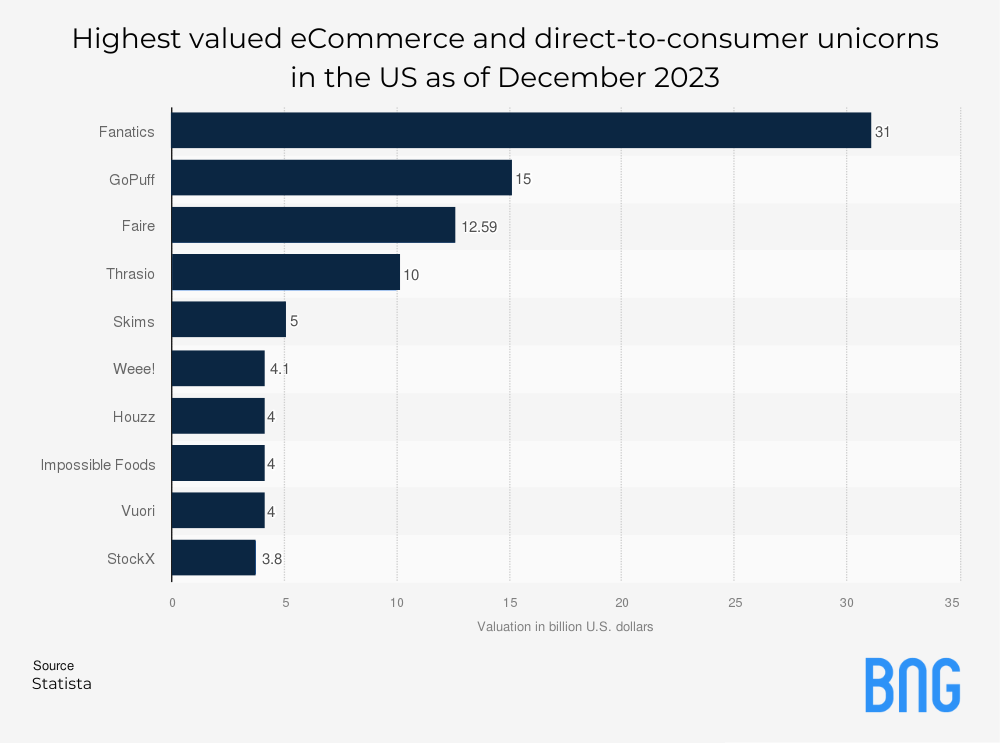
Takeaway Points
The success of startups hinges on a blend of innovation, addressing unmet market needs with fresh solutions, and the presence of a strong, adaptable team.
Effective leadership that drives focus and vision, coupled with robust funding and astute financial management, lays the groundwork for navigating initial business challenges.
Timing the market correctly, cultivating a loyal customer base through exceptional service, and maintaining the agility to pivot in response to feedback and failures are what make a startup successful.